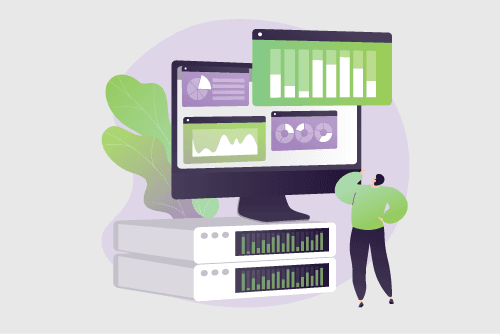Email marketing manager job description
Let’s get real. Job information online can often be overly optimistic — conveniently glossing over the raw bits. But when you’re making decisions about your future, you need all the facts.
That’s why we anonymously surveyed email marketing managers about their job, with hopes of getting an honest insight into what it’s really like.
While we did our best to ensure respondents were Australians and verified their job titles with proof of employment, we can’t guarantee complete accuracy — or that your experiences in the field will reflect theirs. So, we suggest that you take these insights as a guide only and try to talk to people in the field before making an important decision.
Tasks and responsibilities for an email marketing manager
What does an email marketing manager do? Typical tasks and responsibilities include:
- Deciding how a brand or organisation will make strategic use of email. What kind of voice and style will speak to your target audience? How often should you send out emails? What will each email look like? Your goal will be to strategically optimise email engagement with your marketing efforts.
- Lead generation. That is, finding people who are interested in your brand who may not have bought anything from it or otherwise interacted with it.
- Conversion. Trying to get people to go from reading your email to responding to a call to action. This could be donating, participating in an event or sale, or whatever it is that your organisation would like their target audience to do.
- Writing the text of the email, with accompanying links and images.
- Tracking email or campaign performance through marketing analytics. You’ll be tracking number of subscribers, open rate, click-through rate, conversions, and other valuable data.
- Responding to email feedback from the organisation you represent and from email recipients, and using that feedback to improve on future emails.
- Conducting user testing and research. One common method is A/B testing, where you send different emails to different recipients to see which performs better, and to use that information for future emails.
- Designing email campaigns. For example, campaigns to raise awareness of specific issues, collect donations, or to get people to participate in events or sales.
- Creating email templates. The templates may be available on the email marketing software you’re using, or you may need to design your own using HTML and CSS.
How to become an email marketing manager
-
Study
There are no specific formal qualifications that are required for you to work as an email marketing manager. However, it is common to hold a tertiary degree in a field like marketing or communications. Relevant courses should also give you opportunities for hands-on work experience or internships in marketing.
-
Gain experience
You’ll need to be able to show prospective employers that you know how to engage audiences through email communications. You can demonstrate your abilities by starting your own email newsletter, or by volunteering to write a regular newsletter for a charity or local club.
Pathway options
There are many different pathway options if you’re interested in a career as an email marketing manager.
Junior
-
Content marketing assistant
Most common qualification: Certificate IV in Marketing and Communication (BSB40820)
-
social media coordinator
Most common qualification: Diploma of Social Media Marketing (10904NAT)
-
digital marketing assistant
Most common qualification: Certificate IV in Marketing and Communication (BSB40820)
Mid
-
Content specialist
Most common qualification: Bachelor of Communications
-
Email marketing specialist
Most common qualification: Diploma of Digital Marketing (10931NAT)
-
SEM specialist
Most common qualification: Diploma of Digital Marketing (10931NAT)
-
SEO specialist
Most common qualification: Diploma of Digital Marketing (10931NAT)
-
Social media manager
Most common qualification: Diploma of Social Media Marketing (10904NAT)
Senior
-
Data analyst
Most common qualification: Diploma of Digital Marketing (10931NAT)
-
Digital business analyst
Most common qualification: Master of Business Administration (Digital Health Transformation)
-
Digital marketing manager
Most common qualification: Bachelor of Applied Business (Marketing)
-
Digital marketing strategist
Most common qualification: Bachelor of Applied Business (Marketing)
Explore related qualifications
Degrees relevant to future email marketing managers are available throughout Australia. Delivery can be on-campus or online, or a mix of both. Courses cost different amounts depending on the area of study and whether you are eligible for Commonwealth government support.
Diploma of Digital Marketing (10931NAT)
This course will give you the fundamentals you need to start a digital marketing role, which will be useful for those interested in email marketing. You’ll learn how to:
- Apply marketing principles and marketing strategies for digital media,
- Design email marketing campaigns,
- Undertake research and testing.
This course typically takes 12 months of full-time study (or part-time equivalent) to complete.
Advanced Diploma of Digital Marketing (10787NAT)
This is a similar qualification to the Diploma course, but will further deepen and expand your learning. This course typically takes 18 months of full-time study (or part-time equivalent) to complete. You can complete this qualification after the Diploma course and get credit for subjects already undertaken (so it may only take 6 months to upgrade).
Bachelor of Applied Business (Marketing)
A bachelor’s degree will give you practical instruction alongside a strong grounding of marketing theory and an understanding of other, related subjects. You’ll likely study a mix of accounting, economics, advertising, marketing, consumer behaviour, branding, and social research. This course typically takes 3 years of full-time study (or part-time equivalent) to complete.
Related subjects
If you’re interested in the role of email marketing manager, you may also be interested in the following related fields:




























